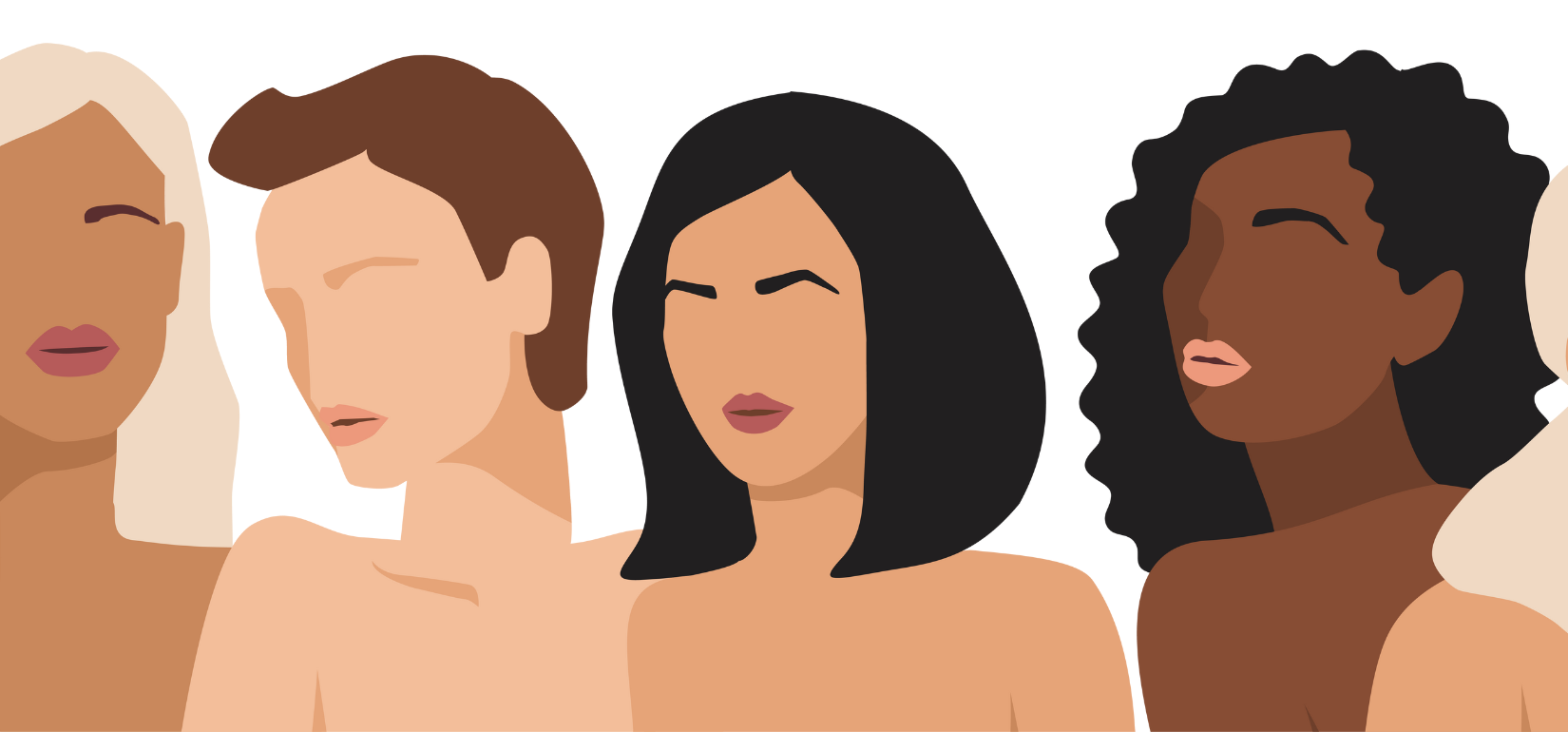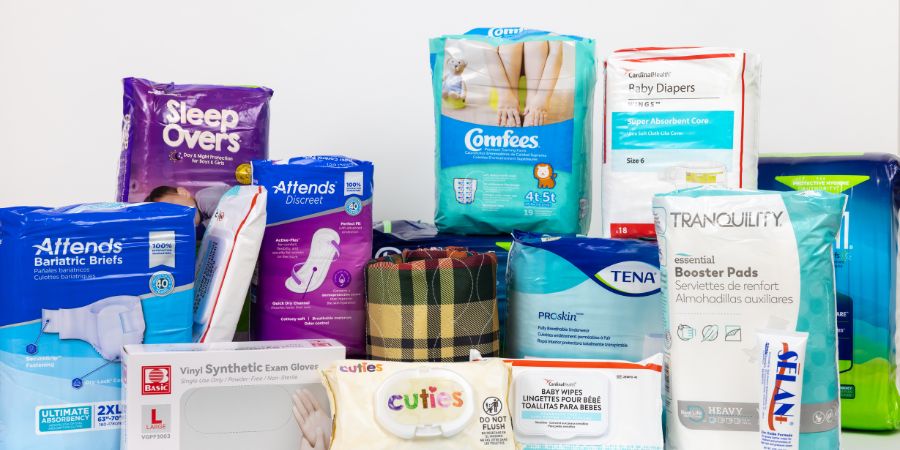Edited by Marlee Septak, Copywriter at Aeroflow Urology.
In this digital age, we use platforms like Facebook and Instagram for information, connection, and support. There are forums for almost every condition or concern imaginable, including incontinence.
However, it's disheartening to find that content related to incontinence management is sometimes unjustly flagged as "inappropriate" on social media platforms, leaving those looking for help with feelings of shame. Social media should be a safe environment for people with incontinence because sometimes, it's the only place where those with the condition feel comfortable speaking about their experiences.
In this article, Aeroflow Urology's Patient Advocacy Expert, Jesse S., will explore why we must advocate for change and break the stigma surrounding incontinence on social media platforms.
Growing Up With Incontinence
My parents first attempted to toilet train me when I was around 3 years old, but around that time, I underwent surgery for a hernia, which led to me not being considered completely toilet trained until I was 6.
For several years after being toilet trained, I had frequent bowel accidents because I didn't have the sensory awareness that I had an urgent need to use the bathroom until it couldn't wait any longer.
Check Your Eligibility
2 Easy Steps
From catheters to pediatric and adult incontinence supplies, discover the continence care essentials covered by your insurance.
Having to wash or throw away regular underwear from accidents was incredibly frustrating. The frustration was ongoing throughout my childhood; I remember my family once took a trip to Disney World, and I didn't feel like I was in the happiest place on earth because I was focusing so much on trying not to have accidents.
As a teenager, it was challenging for me to sense if I had a full bladder. I sometimes had trouble feeling like I was completely empty, feeling awkward with dribbles or leaks, even after finishing using the restroom. I once tried to get a sample pull-up and manage my leaks on my own, but instead of receiving support, my teachers humiliated me in front of my peers. I was removed from middle school choir, in part because of my condition and how I made other people feel.
I prioritized and valued personal responsibility in managing my incontinence. When I tried to ask for help getting incontinence supplies, I was told by one of my teachers that it 'sounded like a personal problem' and that I was on my own. I was also told that I wouldn't be allowed to wear incontinence products at work or if I wanted to graduate.
I tried to get by in pain and discomfort with limited restroom breaks while wearing regular underwear, and it lowered my self-esteem to have teachers evaluate, shame, or criticize how often I had to use the restroom. It made it hard for me to focus. I lost the people I thought were my friends, and it felt like I had no one to talk to. Every small dribble, leak, or close call from not recognizing my needs in time just made me feel worse. It felt like I was being punished for having a basic human need we all share.
Before I found information and support online, it felt like I was the only one experiencing the symptoms of my condition, and I had no one around me who understood what it felt like. I felt tired from carrying shame over something that wasn't my fault. It felt like it was something I always had to hide and keep a secret.
Finding Connection On Social Media
When I discovered how people with incontinence could connect online, it gave me a sense of optimism. I was happy to find I wasn't the only person with autism trying to navigate incontinence. After experiencing embarrassment and humiliation in school from accidents, I was glad I could find comfort in reading and relating to the experiences of others online. It made me feel that I didn't have to be afraid and that I wasn't the only one going through it.
However, connecting with others was not always easy, and there were times when some individuals would send photos or comments that weren’t appropriate, or try to shame me and make me feel bad about my condition. I had to learn the importance of blocking and restricting some people who didn't always understand or respect my boundaries when talking about sensitive topics like incontinence.
I found that having a way to share my journey or ask questions anonymously in a safe space online helped me feel brave enough to stop running away from my incontinence and accept it by showing kindness to myself on my own terms. I realized I wasn't the only one struggling to openly say when I needed to use the restroom or when I was about to experience an accident.
The Inappropriate Flag
When I tried to join private autism support groups online to share my experiences about needing incontinence supplies or managing accidents, my posts and comments would often be hidden or rejected. Certain Tumblr blogs and Instagram would suppress hashtags for “adult diapers” or “incontinence.” The platforms said they weren't "relevant" to the community, even though I was a valid member, going through a realistic experience, wanting to find a connection.
It made me feel like my life experiences and challenges weren't significant or didn't need to be shared with anyone.
I understand that to provide a safe platform for those with and without incontinence to connect and speak online, there must be appropriate rules in place so that the right content reaches the intended audiences and hides it from those who might not need to see it. I also understand the importance of respect and following the rules, but when I'm prevented from talking about something important to my life and the lives of other people, like my autism or incontinence, it feels like I'm less valuable than others.


When people aren't able to share their experiences and aren't able to have access to advice or support from others going through similar challenges, it can make the incontinence community feel fragmented rather than a central place for people to connect confidently. When content is blocked or restricted based on the topics or keywords around incontinence, it reinforces the idea that it's something that's only meant to be suppressed and feels wrong and shameful about. Flagging incontinence content as "inappropriate" can make feelings of loneliness and embarrassment even stronger.
Breaking the Incontinence Stigma
When I watch the news, I often see how easily awareness is raised around conditions like diabetes and how managing blood sugar with insulin is important. We don't openly shame or criticize individuals for checking their blood sugar or using insulin pumps. Diabetes can impact anyone, young or old, no matter what you eat or drink.
Similarly, incontinence can impact anyone at any age, not just young children or older adults. I can get around on my own feet like anyone else, but I still have accidents. I don't want to be labeled as "lazy," "childish," or "immature" for choosing to use incontinence supplies for my leaks. Unfortunately, throughout my childhood, I would often see people who had accidents or wore diapers on the media I consumed portrayed as a punchline or a joke. These people were seen as something to be laughed at. The idea that pull-ups are only for babies, small kids, or older adults never made me feel like laughing. It just felt repetitive and hurtful.
Incontinence deserves to be treated with respect, just as equally as every other medical condition. It shouldn't have to be something we hide away or prevent people from talking about, including on social media. When social platforms give people the correct information to navigate incontinence topics without judgment, it's easier to accept your incontinence with kindness. We shouldn't have to feel like our reputations and values as people are put at risk when we speak about our journeys with incontinence.
If incontinence is so common, we should be able to discuss it without fear. Having social media platforms online, like the Aeroflow Urology Adult Facebook Support Group, has helped make receiving information easy. These groups no longer make me feel embarrassed, and if I have any questions or need help, I know I can trust that I have a good team to support me.
How to Advocate for Change
When I was first trying to navigate my journey with incontinence, I didn't want to feel alone. I knew if I revealed my identity, I might be setting myself up for potential bullying, damage to my reputation, and possibly a loss of opportunities for starting my career. However, I was able to look across different platforms and find a sense of connection with others. When I began to see other people going through similar challenges, I felt less alone and more confident in accepting who I am. I didn't have to keep running away from my incontinence, and with the proper support, I felt happier accepting myself.
Every person has a different journey with incontinence. The more incontinence is suppressed and hidden away, the more depression, stress, and fear we experience when trying to navigate incontinence on our own. Let's work together to ensure that incontinence content is no longer flagged as "inappropriate" online. Let's make it so that those with incontinence– or any other condition for that matter– can find the information and support they need without feeling stigmatized.
Join me in this journey towards positive change. You can join the Aeroflow Urology Adult Facebook Group or Parents' Group, or follow Aeroflow Urology on Instagram and start having conversations that will break the stigma and support others with incontinence!


Resources for Individuals With Incontinence
- Free Incontinence Supplies: If you’ve been diagnosed with incontinence, you may qualify to receive free incontinence products through your Medicaid or Medicaid-managed care plan with Aeroflow Urology! We carry a wide selection of pediatric and adult bladder and bowel care supplies suitable for all different body types and levels of incontinence. We help you select the best products for your unique needs and ship them to your doorstep every month in discreet packaging. If you’d like to find out if you qualify, fill out our secure Eligibility Form. You’ll receive a text message or email within 1-2 business days letting you know of your eligibility status.
- Join the Aeroflow Urology Facebook Groups: Aeroflow Urology promotes open discussions around incontinence management in a safe environment for people of all ages. You can join the Adult Facebook Support Group or the Parents’ Group to join in the conversation.
- Follow Aeroflow Urology on Instagram: Follow Aeroflow on Instagram for helpful information, support, and uplifting stories that we post daily.
- Find Online Forums: Different online forums, like the Reddit Incontinence forum and the National Association for Continence (NAFC) message board are available for those seeking connection, tips, and support with incontinence.
Disclaimer
Information provided on the Aeroflow Urology website is not intended as a substitute to medical advice or care from a healthcare professional. Aeroflow recommends consulting your healthcare provider if you are experiencing medical issues relating to incontinence.









